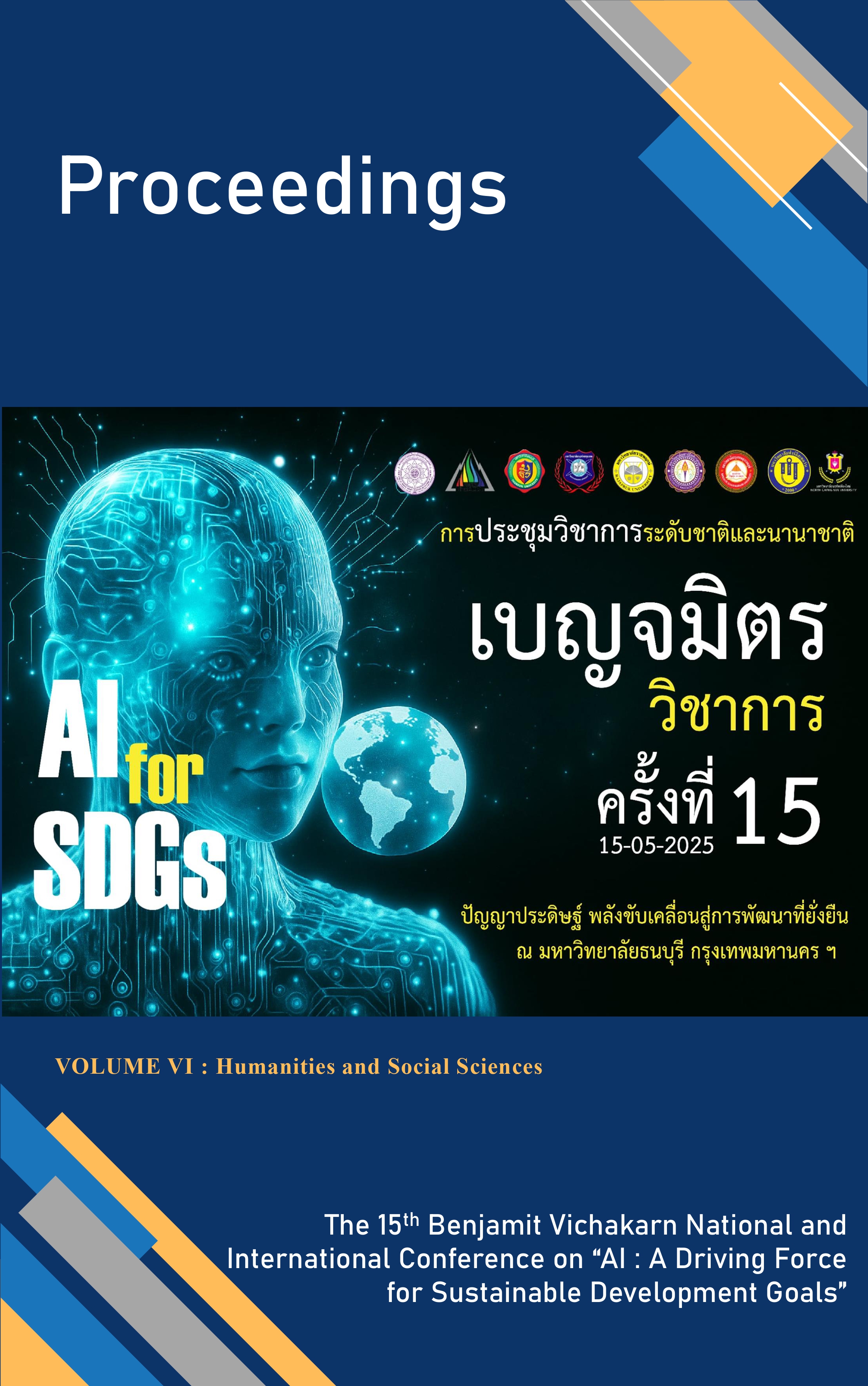การศึกษาโซ่คุณค่าของผ้าทอกะเหรี่ยง กรณีศึกษา กลุ่มทอผ้าบ้านสบหาด
เนื้อหาบทความหลัก
บทคัดย่อ
การวิจัยนี้มีวัตถุประสงค์เพื่อศึกษาโซ่คุณค่าของผ้าทอกะเหรี่ยงบ้านสบหาด ตำบลบ้านหลวง อำเภอจอมทอง จังหวัดเชียงใหม่ ใช้วิธีการวิจัยเชิงคุณภาพ เก็บข้อมูลผ่านการสัมภาษณ์และสนทนากลุ่มจากกลุ่มทอผ้าและหน่วยงานที่เกี่ยวข้อง ผลการศึกษาพบว่าทางกลุ่มมีการจัดหาวัตถุดิบแต่ยังไม่มีเครือข่ายผู้จัดหา การผลิตยังรักษาเทคนิคการทอมือแบบดั้งเดิมและพัฒนาลวดลายเอกลักษณ์เฉพาะถิ่น ด้านโลจิสติกส์ขาออก มีศูนย์การเรียนรู้เป็นจุดจำหน่ายหลักและจัดส่งทางไปรษณีย์ ด้านการตลาดใช้เรื่องราววัฒนธรรมในการสื่อสารและตั้งราคาตามคุณค่าผลิตภัณฑ์ และมีการรับประกันคุณภาพและบริการปรับแก้สินค้า ส่วนกิจกรรมสนับสนุน กลุ่มมีการใช้เทคโนโลยีช่วยสื่อสารกับลูกค้า มีโครงสร้างองค์กรแบบยืดหยุ่นด้วยระบบขายฝากที่ช่วยให้สมาชิกได้รับรายได้โดยตรง มีการจัดการทรัพยากรมนุษย์ผ่านการถ่ายทอดองค์ความรู้ข้ามรุ่นและพัฒนาทักษะช่างทอ และมีการจัดซื้อจัดหาโดยคัดเลือกผู้ส่งมอบวัตถุดิบคุณภาพและใช้ทรัพยากรในท้องถิ่น โดยการศึกษาชี้ให้เห็นแนวทางการพัฒนาที่สำคัญ ได้แก่ การพัฒนาเครือข่ายผู้ส่งมอบวัตถุดิบและระบบขนส่ง การจัดเก็บลายทอเป็นระบบดิจิทัล การพัฒนาบรรจุภัณฑ์และแบรนด์ที่สะท้อนอัตลักษณ์ชุมชน การพัฒนากลยุทธ์ทางการเงินให้ยั่งยืน และการส่งเสริมการฝึกอบรมด้านเทคโนโลยี ซึ่งผลการศึกษานี้สามารถนำไปประยุกต์ใช้เพื่อเพิ่มความสามารถในการแข่งขันและความยั่งยืนของกลุ่มหัตถกรรมทอผ้าพื้นเมืองในบริบทอื่นๆ

